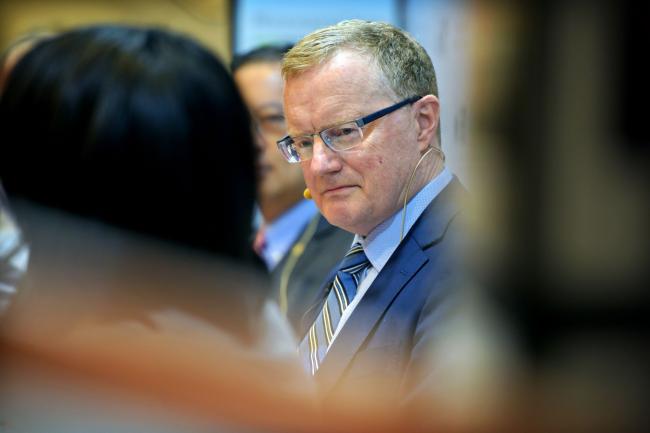(Bloomberg) -- Australian central bank chief Philip Lowe threw his support behind those casting doubt on how effective a new round of monetary policy easing by major economies would be in supporting global growth.
Lowe, in a panel discussion in Canberra Monday, highlighted the shift in the past three months to markets pricing in interest-rate cuts for the U.S., euro area and Japan over the next year. The problem, he said, is that the exchange rate is an “important channel” through which easing stimulates growth.
“But if everyone is easing, there is no exchange-rate channel,” the Reserve Bank of Australia governor said. “We trade with one another, we don’t trade with Mars, so if everyone’s easing, the effect that we get from exchange-rate depreciation via the transmission mechanism isn’t there.”
Lowe said other transmission mechanisms “are weaker at the moment.” It might be possible to gain some extra growth by easing a bit more than counterparts, but described this as “quite a dangerous path to go down.”
“It’s a legitimate question to ask how effective further monetary easing would be,” he told the Australian National University’s Crawford Leadership Forum.
He said that meant nations needed to switch focus to fiscal policy and structural reforms and urged the Australian government to take advantage of low borrowing costs to finance infrastructure investment.
The irony is that the RBA resumed rate cuts just under three weeks ago after an almost three-year hiatus and Lowe is expected to ease again in the next couple of months, bringing Australia’s cash rate down to a fresh record low of 1%.
